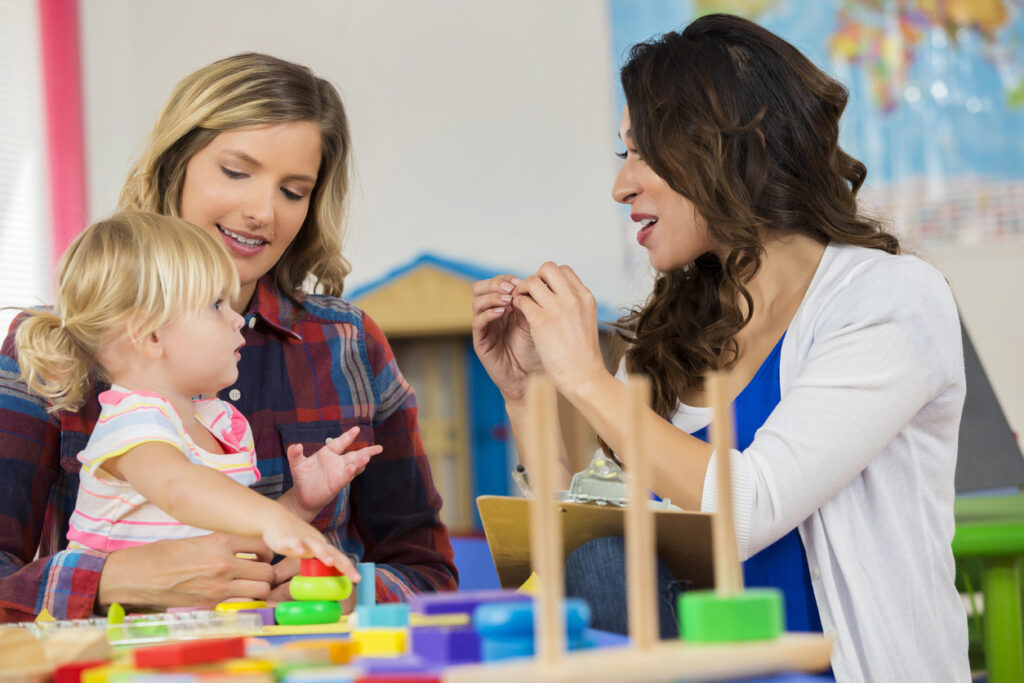Introduction:
Effective communication is the cornerstone of any healthy relationship, and this holds true when interacting with children and teens. Communication skills are vital for understanding their thoughts, emotions, and experiences while also helping them navigate the challenges of growing up. By establishing open and meaningful lines of communication, parents, caregivers, and educators can build stronger connections, foster trust, and create a supportive environment for growth. In this blog, we will explore strategies for effective communication with children and teens, enabling productive and fulfilling interactions.

Active Listening:
Active listening is the foundation of effective communication. It involves fully engaging with the child or teen, paying attention to their words, body language, and emotions. Set aside distractions, maintain eye contact, and show genuine interest in what they have to say. Reflect on their words, paraphrase their thoughts, and ask open-ended questions to encourage further discussion. By actively listening, you create a safe space for them to express themselves and feel valued.
Validate Their Feelings:
Validation is crucial in building trust and nurturing open communication. Children and teens need to know that their feelings are understood and accepted, even if their perspectives differ from ours. Avoid dismissing or trivializing their emotions. Instead, acknowledge their feelings, empathize with their experiences, and let them know it’s okay to feel the way they do. Validating their emotions helps create a supportive environment where they feel comfortable expressing themselves honestly.
Use Age-Appropriate Language:
Adapting your language to the child or teen’s developmental stage is essential for effective communication. Use age-appropriate vocabulary, concepts, and examples that they can understand. Avoid overwhelming them with complex information or talking down to them. Tailoring your language to their level of comprehension fosters better understanding and engagement in the conversation.

Be Respectful and Non-Judgmental:
Respect is a key component of effective communication. Treat children and teens with the same level of respect and courtesy you would offer to adults. Avoid being condescending, dismissing their opinions, or belittling their experiences. Create a non-judgmental space where they feel comfortable sharing their thoughts and ideas without fear of criticism. By promoting mutual respect, you build a strong foundation for open and honest communication.
Encourage Two-Way Dialogue:
Effective communication involves a two-way dialogue where both parties have the opportunity to express themselves. Encourage children and teens to share their thoughts, opinions, and concerns openly. Ask for their input on family decisions or classroom activities, and actively consider their perspectives. Engaging them in meaningful conversations fosters their sense of autonomy, critical thinking, and problem-solving skills.
Set Aside Dedicated Time:
In today’s busy world, it’s crucial to set aside dedicated time for communication with children and teens. Create a routine that allows for meaningful conversations, whether it’s during meal times, family outings, or designated “talk time” each day. Show them that their thoughts and feelings are a priority by providing undivided attention. Regular communication strengthens the bond between you and enables deeper connections.
conclusion:
Effective communication with children and teens is a vital skill that nurtures trust, understanding, and emotional growth. By actively listening, validating their feelings, using age-appropriate language, showing respect, encouraging two-way dialogue, and setting aside dedicated time, you can create an environment that fosters healthy communication and stronger connections. Remember, effective communication is a continuous process that requires patience, empathy, and active participation. By investing in communication skills, you empower children and teens to express themselves, build resilience, and navigate the challenges of life with confidence and emotional well-being.

